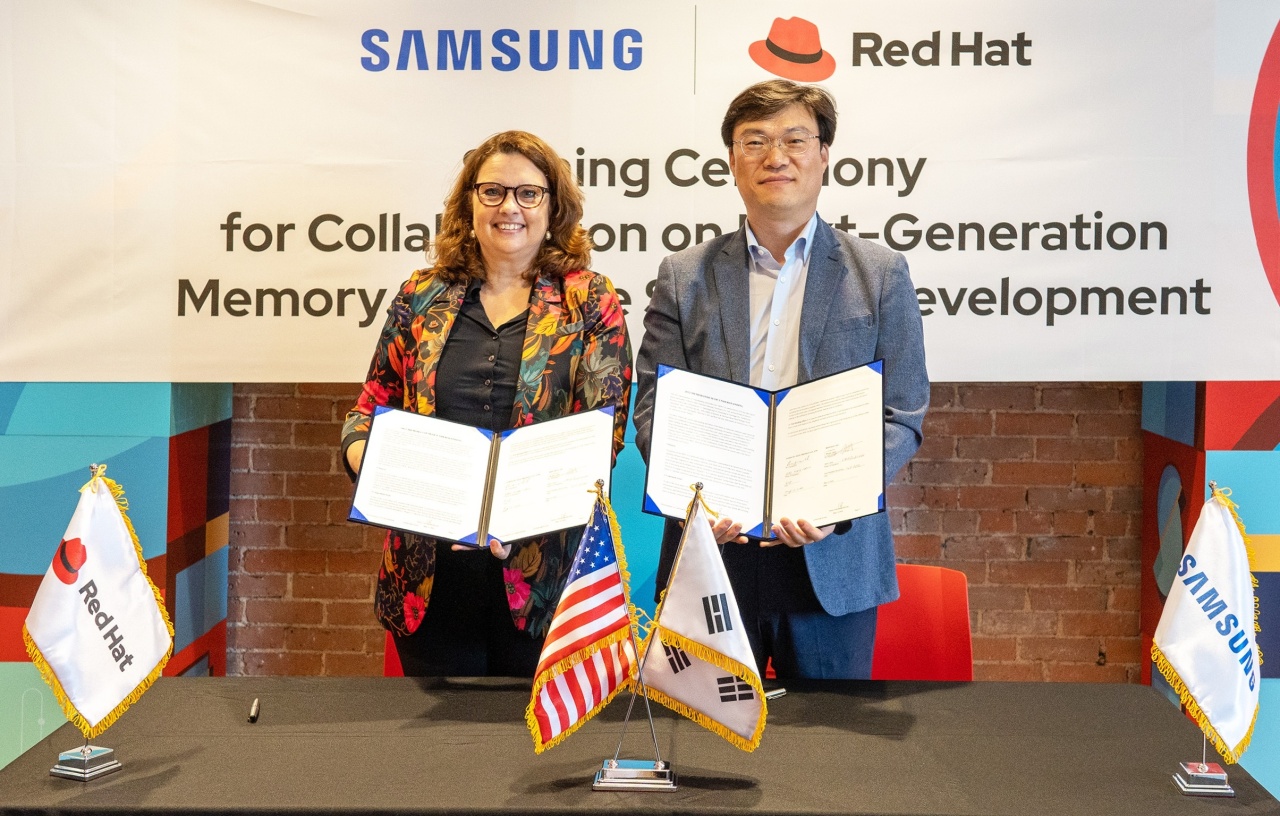 |
A rendered image of a server room (123rf) |
Samsung Electronics said Wednesday it has partnered with US software company Red Hat to develop software technologies for next-generation memory solutions, as the industry is anticipating the birth of software to be integrated in memory chip hardware.
Red Hat, an IBM subsidiary, is known for Red Hat Enterprise Linux, a commercial open-source Linux operating system distribution developed by the company.
Under the partnership, Samsung and Red Hat will jointly develop and validate a software that runs on an enterprise Linux or other open source operating systems for existing memory and storage products, as well as those under development.
This marks the first time that Samsung has joined forces with an open source software company for its semiconductor business. Samsung is the world‘s largest DRAM chip maker and runs the world’s second-largest foundry business by capacity.
Along with the announcement, Samsung unveiled plans to launch the Samsung Memory Research Cloud, where Samsung and Red Hat develop and verify software solutions on server environments, and where customers and partners are able to match optimal software products with memory hardware products supplied by Samsung.
This comes amid disruptive changes to memory designs to keep pace with the growth of data to store for technological advances like artificial intelligence, augmented reality and the metaverse. Samsung said in a statement the industry is requiring more sophisticated software technologies in sync with the latest hardware advancements to achieve a memory chip technology breakthrough.
 |
Marjet Andriesse, senior vice president and head of Red Hat Asia Pacific (left) and Bae Yong-cheol, executive vice president and head of the memory application engineering team at Samsung Electronics pose for a photo at a signing ceremony earlier in May. (Samsung Electronics) |









